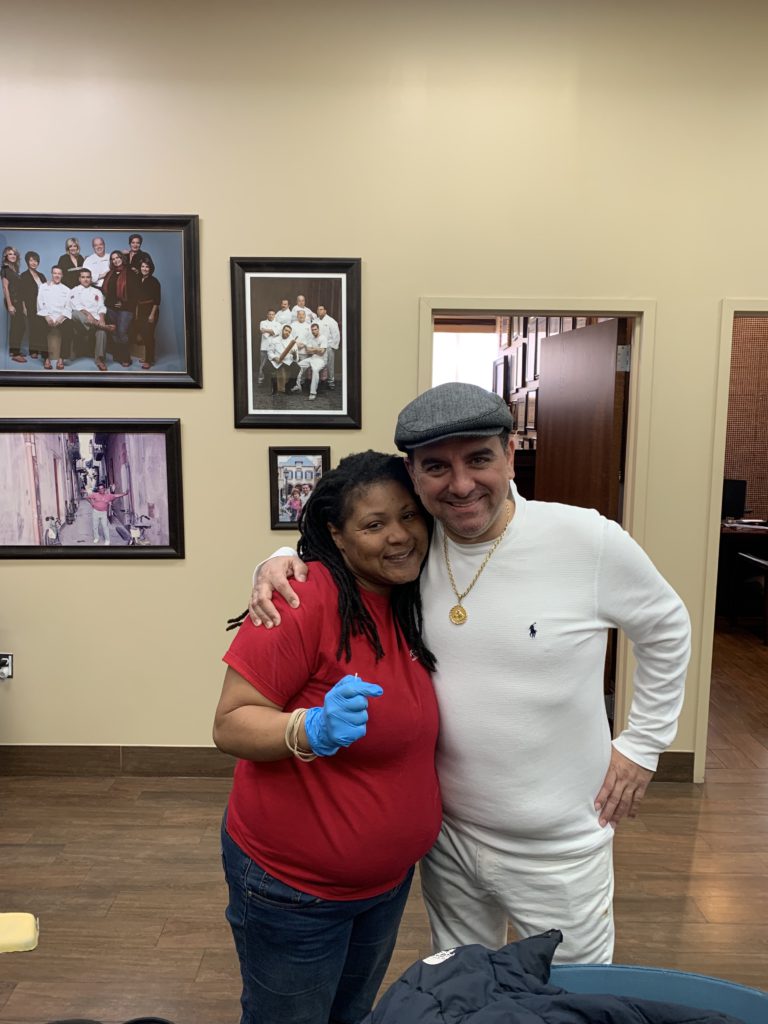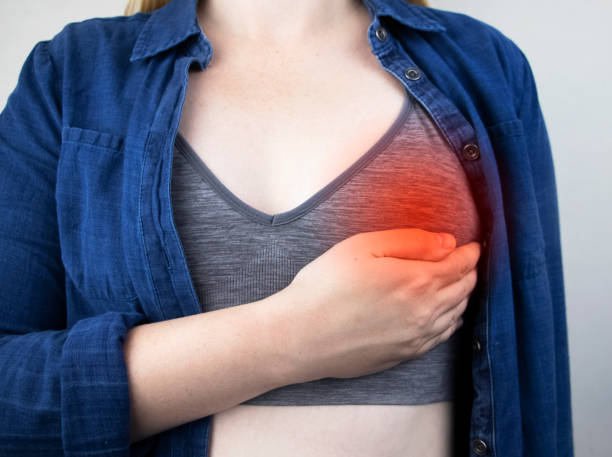
If you’re one of the millions of people struggling with gastroesophageal reflux disease (GERD), you know how frustrating and uncomfortable it can be. From heartburn to regurgitation, GERD symptoms can interfere with your daily life and prevent you from enjoying your favorite foods and activities. While there are many treatments available, finding a permanent solution is key to achieving lasting relief. We’ll explore the best ways to cure GERD permanently
Understanding GERD: Causes, Symptoms, and Complications
GERD is caused by a weakening of the lower esophageal sphincter (LES), which is the muscle that separates the esophagus from the stomach. When the LES is weak or relaxes inappropriately, stomach acid can flow back up into the esophagus, causing irritation and inflammation.
There are several factors that can contribute to the development of GERD, including:
- Obesity or being overweight
- Smoking
- Pregnancy
- Hiatal hernia
- Certain medications, such as antidepressants and sedatives
Symptoms of GERD can vary from person to person but often include:
- Heartburn
- Regurgitation
- Chest pain
- Difficulty swallowing
- Nausea or vomiting
In some cases, untreated GERD can lead to complications such as:
- Esophagitis, or inflammation of the esophagus
- Strictures, or narrowing of the esophagus
- Barrett’s esophagus, a condition in which the cells in the lining of the esophagus change and become precancerous
Medical Treatments for GERD: Pros, Cons, and Long-Term Effects
Medical
treatments for GERD include medications that aim to reduce the amount of acid in the stomach or strengthen the LES. Some common medications include:
- Proton pump inhibitors (PPIs) such as omeprazole and lansoprazole
- H2 blockers such as ranitidine and famotidine
- Antacids such as Tums and Rolaids
- Prokinetics such as metoclopramide
While medications can be effective in reducing symptoms of GERD, there are potential downsides to long-term use. PPIs, for example, have been linked to an increased risk of kidney disease, osteoporosis, and infections such as pneumonia and C. difficile. In addition, some people may not respond well to medications or experience unpleasant side effects.
In some cases, surgery may be recommended to treat GERD. This can include procedures such as fundoplication, which involves wrapping the upper part of the stomach around the LES to strengthen it. While surgery can be effective, it is typically only recommended for severe cases that do not respond to other treatments.
The Role of Diet in Permanently Treating GERD
Diet plays a
significant role in the development and management of GERD. Certain foods and drinks can trigger symptoms, while others can help to alleviate them. Some tips for incorporating a GERD-friendly diet into your lifestyle include:
- Avoiding acidic foods and drinks such as citrus fruits, tomatoes, and coffee
- Limiting or avoiding spicy foods
- Eating smaller, more frequent meals throughout the day rather than large meals
- Chewing food thoroughly and eating slowly
- Avoiding eating for at least two to three hours before lying down
In addition to avoiding trigger foods, some foods may actually help to alleviate symptoms of GERD. These include:
- High-fiber foods such as whole grains, fruits, and vegetables
- Lean protein sources such as chicken, fish, and tofu
- Non-citrus fruits such as bananas, melons, and apples
While diet alone may not completely cure GERD, making dietary changes can be a helpful component of a comprehensive treatment plan. It’s important to work with a healthcare professional or registered dietitian to develop an individualized diet plan that works best for you.

Eliminating Triggers: Foods and Habits to Avoid for GERD Relief
Certain foods and habits can trigger symptoms of GERD. By identifying and avoiding these triggers, you can help alleviate symptoms and achieve lasting relief. Here are some common triggers to be aware of:
Foods: Acidic and spicy foods, fried or fatty foods, chocolate, mint, onions, garlic, and caffeine can all trigger symptoms of GERD. Alcohol and carbonated beverages can also be problematic.
Smoking: Smoking can weaken the LES and increase the production of stomach acid, making it a common trigger for GERD symptoms.
Overeating: Eating large meals can put pressure on the stomach, causing stomach acid to move into the esophagus and triggering symptoms.
Tight clothing: Wearing tight clothing around the waist can also put pressure on the stomach, causing acid to move into the esophagus.
Lying down after meals: Lying down too soon after eating can allow stomach acid to flow back up into the esophagus, triggering symptoms.
Incorporating Proven Natural Remedies for GERD into Your Daily Routine
 Ginger:
Ginger: Adding fresh ginger to tea, smoothies, or stir-fries, or taking ginger supplements can help reduce inflammation in the esophagus and alleviate symptoms of GERD.
Slippery elm: Taking slippery elm supplements or drinking it as a tea can help coat the esophagus and protect it from acid reflux.
Aloe vera: Drinking aloe vera juice or taking aloe vera supplements can help soothe the lining of the esophagus and reduce inflammation.
Licorice root: Taking licorice root supplements or drinking licorice tea can help reduce inflammation in the esophagus and increase the production of mucus to protect the lining of the esophagus from stomach acid.
Probiotics: Taking probiotic supplements or eating probiotic-rich foods like yogurt and kefir can help improve digestion and reduce inflammation in the gut, which can alleviate symptoms of GERD.
The Importance of Maintaining a Healthy Weight for GERD Sufferers
Maintaining a
healthy weight is key for GERD sufferers, as extra weight can exacerbate symptoms. Being overweight or obese can put pressure on your abdomen and increase the risk of acid reflux, making symptoms more severe.
To manage GERD symptoms, it’s important to maintain a healthy weight through lifestyle changes like a healthy diet and regular exercise. Aim for a balanced diet rich in fruits, vegetables, lean protein, and whole grains while avoiding processed foods, sugar, and saturated fats. Additionally, exercise for at least 150 minutes each week to promote weight loss and reduce inflammation.
Stress Management Techniques for GERD Relief and Prevention

Stress can trigger GERD symptoms, so it’s important to manage stress to reduce the frequency and severity of symptoms. Try incorporating these stress management techniques into your daily routine:
- Mindfulness practices like meditation, deep breathing exercises, and yoga
- Other stress-reducing activities like reading, listening to music, or taking a warm bath
Identifying your stress triggers and developing effective coping strategies is also important. Consider speaking with a mental health professional for help.
By managing stress, you can reduce the production of stomach acid and relax the muscles in the esophagus, helping to prevent acid reflux and improve your overall quality of life.
How to Manage Nighttime GERD Symptoms for Better Sleep
Nighttime GERD symptoms can disrupt your sleep, but these strategies can help:
Elevate your head and upper body: Use a wedge pillow or elevate the head of your bed.
Avoid eating and drinking before bed: Wait 2-3 hours after eating and stick to water before bedtime.
Wear loose-fitting clothing: Avoid tight clothing around the waist.
Try over-the-counter medications: Antacids or acid reducers may help.
Practice good sleep hygiene: Establish a routine, avoid screens before bed, and create a comfortable sleep environment.
By following these strategies, you can reduce the impact of nighttime GERD symptoms and improve your sleep quality.
GERD and Exercise: Best Practices for Reducing Symptoms

To reduce GERD symptoms during exercise, follow these best practices:
Choose low-impact activities: Walking, cycling, or swimming are less likely to trigger symptoms.
Avoid intense exercise after eating: Wait at least two hours after eating before engaging in intense workouts.
Wear loose-fitting clothing: Tight clothing can increase pressure in the abdomen and trigger symptoms.
Stay hydrated: Drink plenty of water before, during, and after exercise to flush acid out of your system.
Take breaks as needed: Rest if you experience symptoms during exercise.
By following these practices, you can exercise while minimizing GERD symptoms.
Finding a Long-Term Solution: Working with Your Doctor to Create a Treatment Plan

- Medical intervention may be necessary for severe GERD cases
- Personalized treatment plans can provide lasting relief
- Medications like antacids, H2 blockers, and PPIs may be recommended
- Surgical interventions like fundoplication or LINX may be necessary in severe cases
- Working closely with your doctor is crucial for developing a personalized treatment plan
- Communication about symptoms, lifestyle habits, and treatment goals is key.

 If you’re one of the millions of people struggling with gastroesophageal reflux disease (GERD), you know how frustrating and uncomfortable it can be. From heartburn to regurgitation, GERD symptoms can interfere with your daily life and prevent you from enjoying your favorite foods and activities. While there are many treatments available, finding a permanent solution is key to achieving lasting relief. We’ll explore the best ways to cure GERD permanently
If you’re one of the millions of people struggling with gastroesophageal reflux disease (GERD), you know how frustrating and uncomfortable it can be. From heartburn to regurgitation, GERD symptoms can interfere with your daily life and prevent you from enjoying your favorite foods and activities. While there are many treatments available, finding a permanent solution is key to achieving lasting relief. We’ll explore the best ways to cure GERD permanently

 Ginger: Adding fresh ginger to tea, smoothies, or stir-fries, or taking ginger supplements can help reduce inflammation in the esophagus and alleviate symptoms of GERD.
Slippery elm: Taking slippery elm supplements or drinking it as a tea can help coat the esophagus and protect it from acid reflux.
Aloe vera: Drinking aloe vera juice or taking aloe vera supplements can help soothe the lining of the esophagus and reduce inflammation.
Licorice root: Taking licorice root supplements or drinking licorice tea can help reduce inflammation in the esophagus and increase the production of mucus to protect the lining of the esophagus from stomach acid.
Probiotics: Taking probiotic supplements or eating probiotic-rich foods like yogurt and kefir can help improve digestion and reduce inflammation in the gut, which can alleviate symptoms of GERD.
Ginger: Adding fresh ginger to tea, smoothies, or stir-fries, or taking ginger supplements can help reduce inflammation in the esophagus and alleviate symptoms of GERD.
Slippery elm: Taking slippery elm supplements or drinking it as a tea can help coat the esophagus and protect it from acid reflux.
Aloe vera: Drinking aloe vera juice or taking aloe vera supplements can help soothe the lining of the esophagus and reduce inflammation.
Licorice root: Taking licorice root supplements or drinking licorice tea can help reduce inflammation in the esophagus and increase the production of mucus to protect the lining of the esophagus from stomach acid.
Probiotics: Taking probiotic supplements or eating probiotic-rich foods like yogurt and kefir can help improve digestion and reduce inflammation in the gut, which can alleviate symptoms of GERD.
 Stress can trigger GERD symptoms, so it’s important to manage stress to reduce the frequency and severity of symptoms. Try incorporating these stress management techniques into your daily routine:
Stress can trigger GERD symptoms, so it’s important to manage stress to reduce the frequency and severity of symptoms. Try incorporating these stress management techniques into your daily routine:
 To reduce GERD symptoms during exercise, follow these best practices:
Choose low-impact activities: Walking, cycling, or swimming are less likely to trigger symptoms.
Avoid intense exercise after eating: Wait at least two hours after eating before engaging in intense workouts.
Wear loose-fitting clothing: Tight clothing can increase pressure in the abdomen and trigger symptoms.
Stay hydrated: Drink plenty of water before, during, and after exercise to flush acid out of your system.
Take breaks as needed: Rest if you experience symptoms during exercise.
By following these practices, you can exercise while minimizing GERD symptoms.
To reduce GERD symptoms during exercise, follow these best practices:
Choose low-impact activities: Walking, cycling, or swimming are less likely to trigger symptoms.
Avoid intense exercise after eating: Wait at least two hours after eating before engaging in intense workouts.
Wear loose-fitting clothing: Tight clothing can increase pressure in the abdomen and trigger symptoms.
Stay hydrated: Drink plenty of water before, during, and after exercise to flush acid out of your system.
Take breaks as needed: Rest if you experience symptoms during exercise.
By following these practices, you can exercise while minimizing GERD symptoms.







